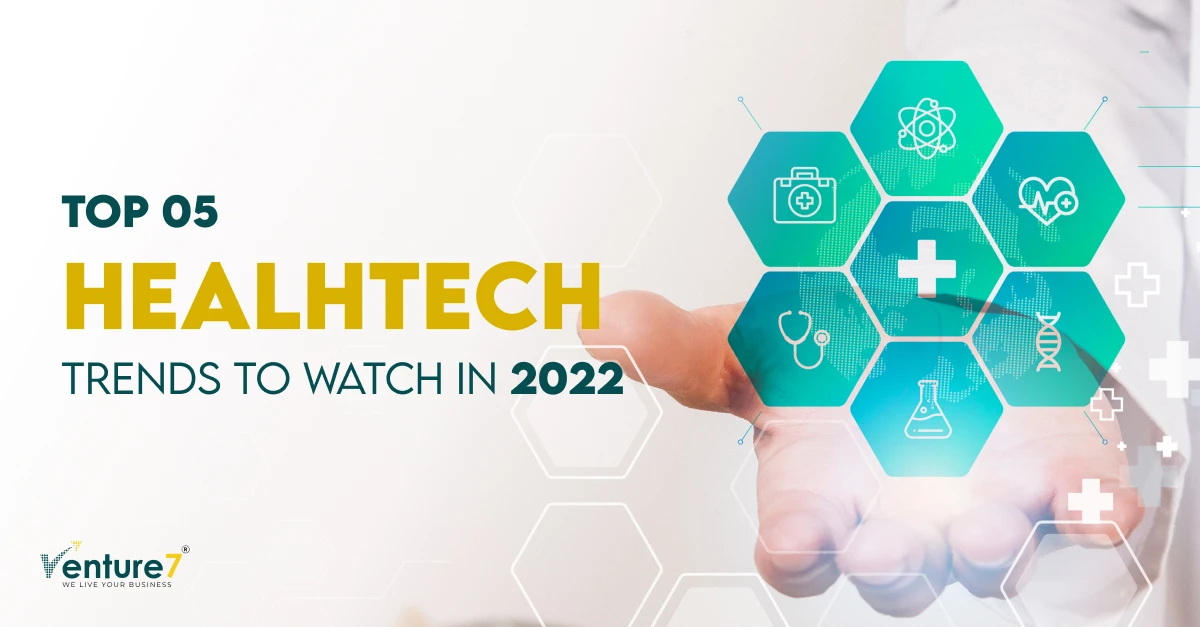The coronavirus pandemic has vividly transformed the way healthcare is practiced globally. Technology in healthcare is crucial to balance the multiple challenges within the healthcare industry and maintain robust healthcare facilities while providing medical services. Global healthcare experts have identified the top five health tech trends to watch for in 2022. These latest technologies within the healthcare industry are a boon to the medical industry. Medical experts have appraised it with ascertained results for effectiveness. Digital transformation empowers healthcare workers, enabling them to deliver quality care to all patients.
Five Most Popular Health Tech Trends in 2022
Internet of Medical Things (IoMT), cybersecurity measures, Remote Patient Monitoring (RPM), Virtual Reality (VR), and Big Data analytics play a vital role in shaping the global digital health landscape.
Internet of Medical Things (IoMT)
IoMT defines the entire medical industry and is a critical part of the latest health care systems. The objective of IoMT is to provide adequate medical care to the needy. With technological updates, now the patient owns their health monitoring equipment, such as wearables and trackers, which has 24×7 access to the doctors. These devices provide detailed real-time data while recording, monitoring, and saving the patients’ medical data periodically. Such data monitoring is proven to reduce the risk of death and other complicated situations.
Alternatively, watches from Apple and allied brands help track sleep patterns, nutrition habits, the average activity level, and other monitored medical parameters, making a person conscious about their health.
Cybersecurity Measures
Cybersecurity measures involve the interconnectivity of all IoMT medical devices and help detect threats within the healthcare network. It helps protect confidential patients’ information and the availability and integrity of medical data. The advanced medical technological enhancements are a significant security layer for all the sensitive patient data. Robust AI models are deployed to overcome the need to share patients’ information.
Remote Patient Monitoring (RPM)
Remote patient monitoring saves time, medical resources and gives accessibility to patients from rural areas. It includes online appointments, remote medical care, and video conferencing. Advanced IoMT medical devices empower RPM services, creating opportunities and quality medical aid at any given time. RPM contributes significantly to health equity and offers various health services under geographical, social, economic, and political conditions. RPM coupled with IoMT depicts an enormous leap in healthcare technology.
Virtual Reality (VR)
Virtual Reality has revolutionized healthcare by lowering medical costs and offering quality services. Medical technology coupled with VR offers seamless digital interactions that can be reliable and provide secure access to remote medical data. All the VR solutions incorporated into the healthcare facilities empower physicians to make more accurate diagnoses. They also help customize patient treatments and maintain efficient healthcare systems at a lower cost. VR in healthcare is used for surgical training, education for medical students, and providing insights into real-case visualizations. It is also used to provide virtual clinic tours.
Big Data Analytics
The introduction of AI technology in the healthcare industry is cost-effective and offers real-time analysis, long-distance analysis, and patient data measurement. The healthcare industry generates tons of information every second, which is very complex and unstructured. The data is placed on dozens of spreadsheets that can be confusing and unassorted. Adopting Big Data in real-time analytics streamlines the data and enhances the digital future of the healthcare industry. Artificial Intelligence (AI) and Machine Learning (ML) technologies help strengthen the services and accurately enhance patients’ needs. The latest healthcare trends introduce next-level automation and augmentation to improve healthcare facilities’ compliance, control, and capacity processes.
The global healthcare system is undergoing a rapid transformation coupled with advanced technology to monitor patients’ well-being and provide high-quality medical care. There is also a drastic increase in the adoption of electronic health records, practice management tools, and workforce management solutions, improving overall patient engagement care.





